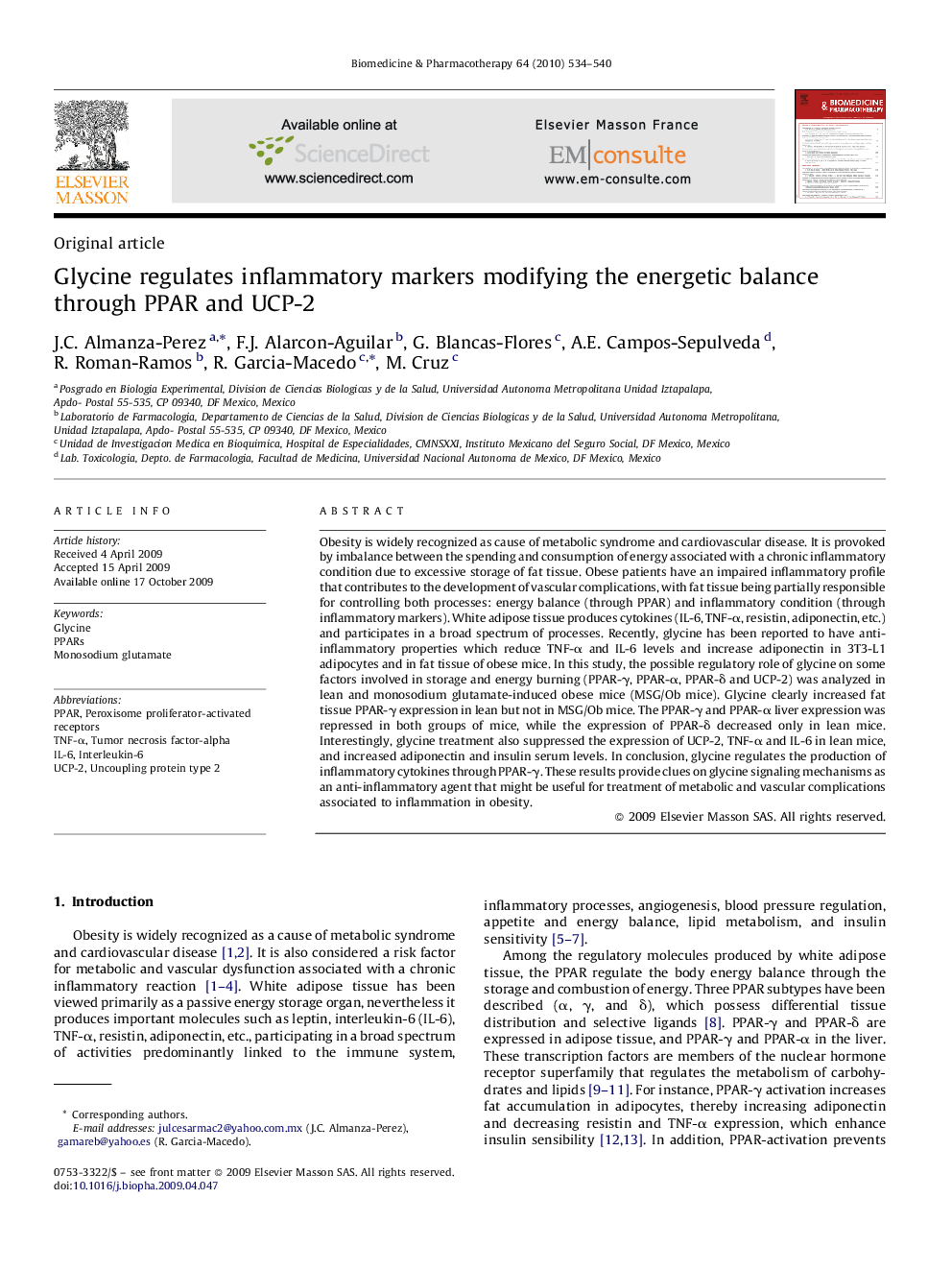| Article ID | Journal | Published Year | Pages | File Type |
|---|---|---|---|---|
| 2524862 | Biomedicine & Pharmacotherapy | 2010 | 7 Pages |
Obesity is widely recognized as cause of metabolic syndrome and cardiovascular disease. It is provoked by imbalance between the spending and consumption of energy associated with a chronic inflammatory condition due to excessive storage of fat tissue. Obese patients have an impaired inflammatory profile that contributes to the development of vascular complications, with fat tissue being partially responsible for controlling both processes: energy balance (through PPAR) and inflammatory condition (through inflammatory markers). White adipose tissue produces cytokines (IL-6, TNF-α, resistin, adiponectin, etc.) and participates in a broad spectrum of processes. Recently, glycine has been reported to have anti-inflammatory properties which reduce TNF-α and IL-6 levels and increase adiponectin in 3T3-L1 adipocytes and in fat tissue of obese mice. In this study, the possible regulatory role of glycine on some factors involved in storage and energy burning (PPAR-γ, PPAR-α, PPAR-δ and UCP-2) was analyzed in lean and monosodium glutamate-induced obese mice (MSG/Ob mice). Glycine clearly increased fat tissue PPAR-γ expression in lean but not in MSG/Ob mice. The PPAR-γ and PPAR-α liver expression was repressed in both groups of mice, while the expression of PPAR-δ decreased only in lean mice. Interestingly, glycine treatment also suppressed the expression of UCP-2, TNF-α and IL-6 in lean mice, and increased adiponectin and insulin serum levels. In conclusion, glycine regulates the production of inflammatory cytokines through PPAR-γ. These results provide clues on glycine signaling mechanisms as an anti-inflammatory agent that might be useful for treatment of metabolic and vascular complications associated to inflammation in obesity.
